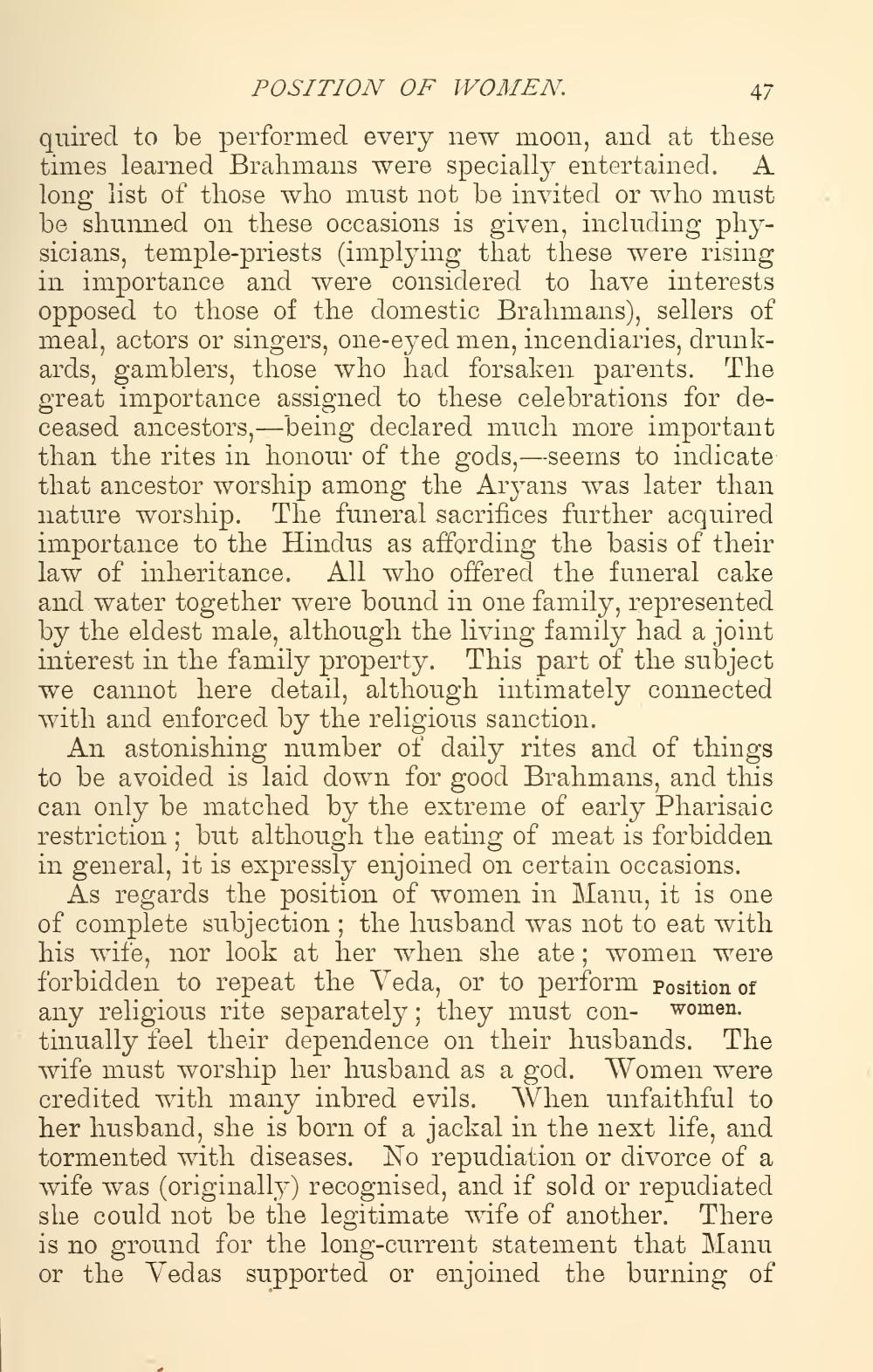________________
POSITION OF WOMEN.
quired to be performed every new moon, and at these times learned Brahmans were specially entertained. A long list of those who must not be invited or who must be shunned on these occasions is given, including physicians, temple-priests (implying that these were rising in importance and were considered to have interests opposed to those of the domestic Brahmans), sellers of meal, actors or singers, one-eyed men, incendiaries, drunkards, gamblers, those who had forsaken parents. The great importance assigned to these celebrations for deceased ancestors,-being declared much more important than the rites in honour of the gods,--seems to indicate that ancestor worship among the Aryans was later than nature worship. The funeral sacrifices further acquired importance to the Hindus as affording the basis of their law of inheritance. All who offered the funeral cake and water together were bound in one family, represented by the eldest male, although the living family had a joint interest in the family property. This part of the subject we cannot here detail, although intimately connected with and enforced by the religious sanction.
An astonishing number of daily rites and of things to be avoided is laid down for good Brahmans, and this can only be matched by the extreme of early Pharisaic restriction ; but although the eating of meat is forbidden in general, it is expressly enjoined on certain occasions.
As regards the position of women in Manu, it is one of complete subjection; the husband was not to eat with his wife, nor look at her when she ate; women were forbidden to repeat the Veda, or to perform Position of any religious rite separately; they must con- women. tinually feel their dependence on their husbands. The wife must worship her husband as a god. Women were credited with many inbred evils. When unfaithful to her husband, she is born of a jackal in the next life, and tormented with diseases. No repudiation or divorce of a wife was (originally) recognised, and if sold or repudiated she could not be the legitimate wife of another. There is no ground for the long-current statement that Manu or the Vedas supported or enjoined the burning of




